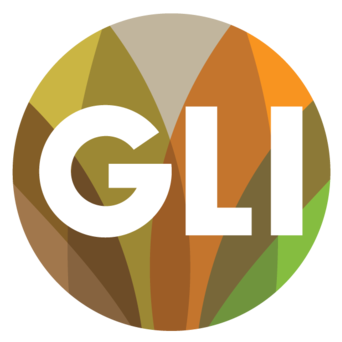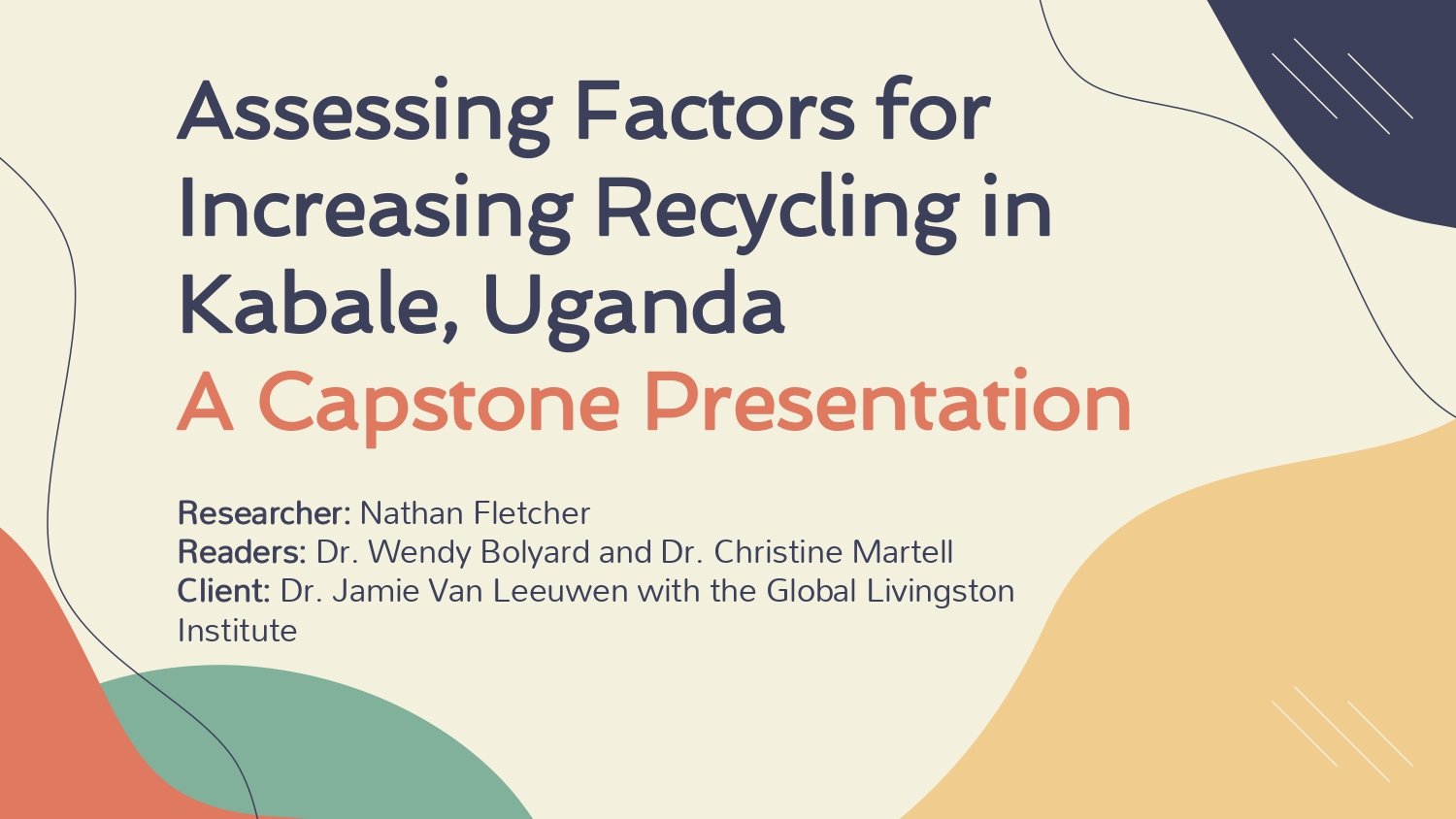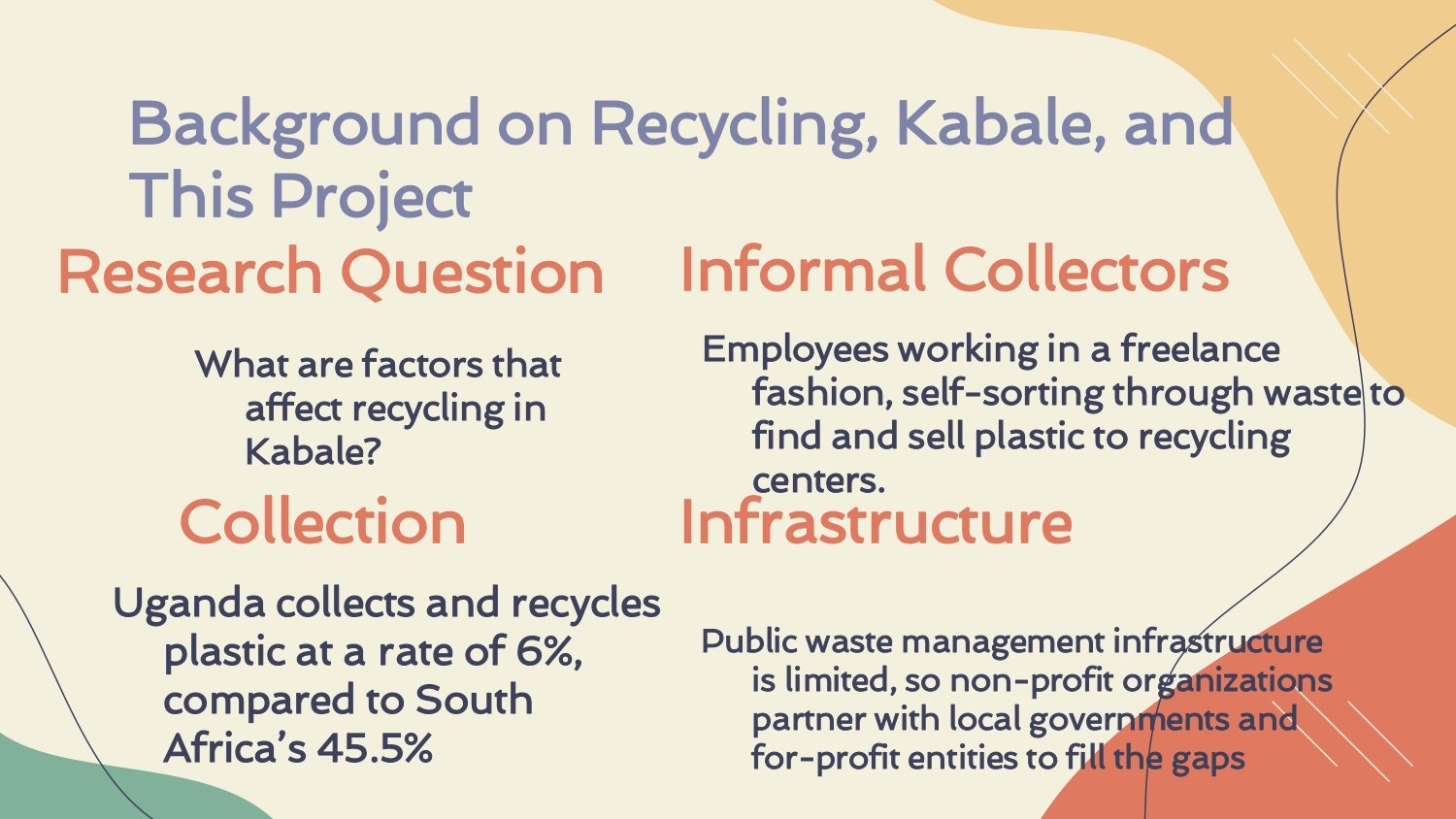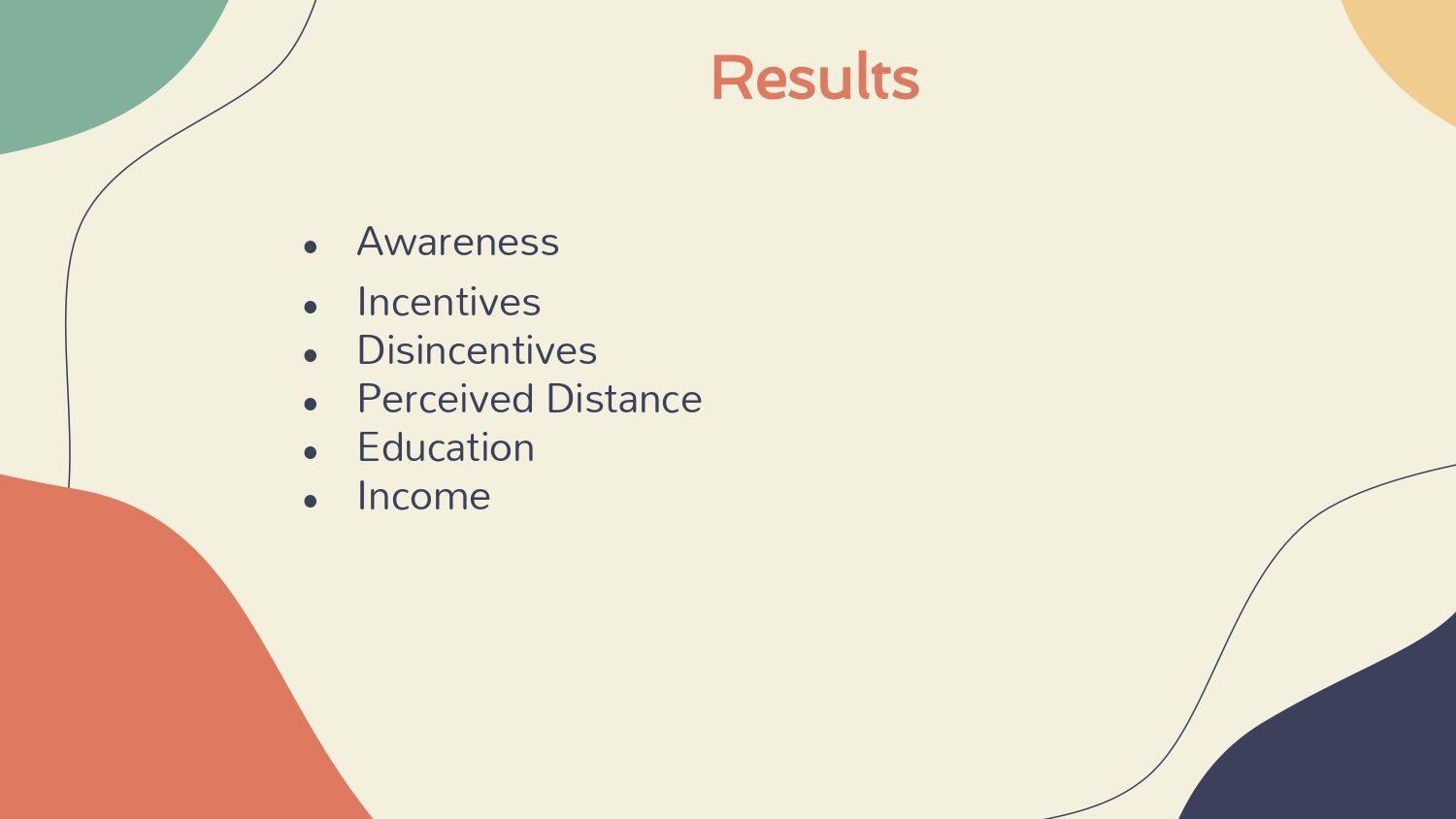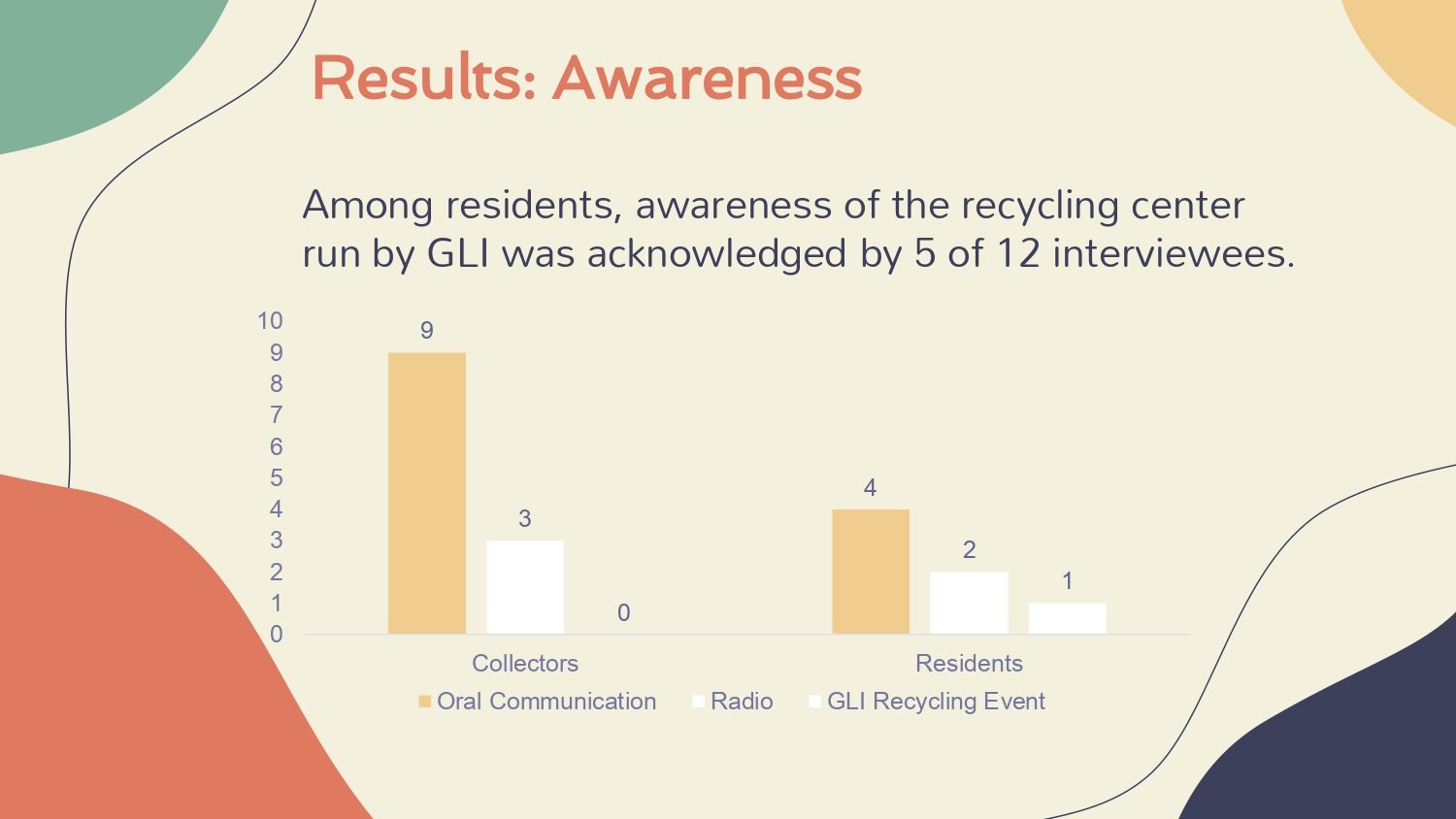This research study was undertaken as a capstone project for the Global Livingston Institute. The purpose of this study was to investigate the factors that are associated with plastic recycling in Kabale, Uganda, to enable the client to make changes to increase collection rates.
Prepared by: Nathan Fletcher
University of Colorado Denver
PUAD 5361
Summary →
The results of this study demonstrated that income, access, perceived economic benefits, economics, and disincentives such as access and health concerns, all are associated with recycling outcomes. Further studies in the region should be conducted to support and enhance the results of this study through quantitative analysis. Awareness campaigns conducted over the radio and in-person should be utilized to educate the populace on the environmental benefits of recycling but also the tangible and available economic opportunity available through recycling. Plastic drop-off points should be installed in communities around Kabale to increase public access to recycling opportunities and decrease transportation risks. Furthermore, raising the buyback value of the plastic should be done to incentivize a broader band of individuals to recycle at the center, increasing collection.
Assessing Factors for Increasing Recycling in Kabale
Over the last 50 years, the percentage of Uganda’s population residing in urban areas has increased from 7% in 1971 to 26% in 2021 (World Bank, 2021). This substantial increase has led to rising administrative challenges. One of these is an influx of single-use consumer products that are then disposed into landfills or end up in nature (Temple, 2021). This increase places a burden on developing waste management systems, but offers an opportunity to turn towards sustainability. Despite the efforts of several large corporations that partner with Uganda to increase recycling, these efforts are largely concentrated in Kampala (Wansi, 2022). Many African nations are struggling to meet the waste management issues urbanization creates, with most recycling at lower than global average levels (United Nations Environment, 2018). However, some African nations have significantly higher percentages of consumed goods recycled when compared to Uganda. Last year, South Africa recycled 45.5% of its consumed plastic (Godfrey, 2021), whereas Uganda recycled just 6% (Planet Buyback, 2021). This Ugandan recycling rate means only 36 of the 600 daily metric tons of plastic consumed are recycled. Both nations rely heavily on private and nonprofit waste management organizations which supplement the public infrastructure, especially in the areas of recycling (Viljoen & Schenck, 2019).
This research serves the Global Livingston Institute (GLI), which is a non-governmental organization (NGO) operating in East Africa and out of Denver, Colorado. GLI is focused on community development and advancing best practices while finding “equitable, sustainable, and culturally responsive solutions to challenges in the areas of health, economic development, and the environment,” (Van Leeuwen, 2021). Dr. Jamie Van Leeuwen is the CEO of this organization and this study’s client. GLI maintains a commitment to the strategy “Listen. Think. Act.,” throughout their organization while they host a variety of projects and programs, ranging from the recycling operations this research focuses on to women’s leadership retreats and a free concert series promoting culture sharing, public health, and economic development (Van Leeuwen, 2021). This organization hosts hundreds of students per year on immersion trips to facilitate re-thinking global communities and development as well as fostering greater understanding. One of GLI’s big initiatives has been to establish and operate two large-scale recycling centers located in the regions of Kabale and Lira, Uganda. These centers pay Ugandan citizens shillings per kilogram of plastic bottles brought (250/kg in Kabale, 500/kg in Lira to compensate for higher market saturation), where they then compress it and sell it to a center in Kampala for export.
Polytheylene Tetrephthalates (PETs), a particularly prevalent type of plastic that is found in soda bottles, are a primary vehicle of plastic consumption and pollution in Uganda. Several organizations including GLI, in coordination with Planet Buyback, have worked to enable Ugandans to attempt a circular PET economy (Planet Buyback, 2021;Temple, 2021). PETs in the form of bottles are a significant source of improperly disposed solid wastes, with much of the materials that are not recycled ending up burned, creating toxic fumes. To help increase collection rates in Uganda, the two locations operated by GLI exclusively collect PETs in the form of plastic bottles, and these centers work to maintain the environments of their communities while injecting economic stimulus into their local economies (Global Livingston Center, 2021).
This research paper begins with a review of the literature concerning solid waste management in both Uganda and the broad recycling efforts world-wide to evaluate how other studies have attempted to find ways to improve recycling outcomes in their regions. From there a brief outline of the research methods are outlined. The results of the data analysis inform recommendations made to the Global Livingston Institute. In total, this study answers the question: what factors are associated with increased recycling outcomes?
